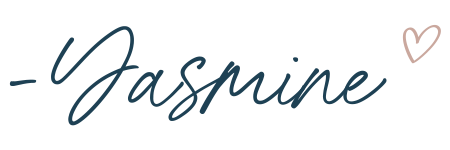In today’s digital era, social media has revolutionized the way professionals connect, learn, and share knowledge. For nurses, this platform offers immense potential for growth and development.
From expanding their reach to promoting evidence-based practices, social media can empower nurses on their professional journey. However, it is crucial to navigate this landscape with caution, considering patient confidentiality and ethical considerations.
In this article, we will delve into the best practices, benefits, and challenges of leveraging social media for nurses, empowering them to unleash its power and thrive in their careers.
Benefits and Opportunities
Social media platforms offer numerous advantages for nurses, including increasing patient engagement and expanding their professional network.
By utilizing social media, nurses can interact with patients in a more accessible and convenient manner, encouraging them to actively participate in their healthcare journey. Through educational content and interactive discussions, nurses can empower patients to make informed decisions and take control of their health.
Additionally, social media allows nurses to connect with healthcare professionals worldwide, fostering collaboration, knowledge sharing, and professional growth. By expanding their professional network, nurses can gain access to the latest research, evidence-based practices, and diverse perspectives, ultimately enhancing the quality of care they provide.
Best Practices and Ethics
Nurses must adhere to best practices and ethical guidelines when utilizing social media platforms. Social media engagement can offer numerous benefits, but it also presents ethical considerations in sharing information. To ensure professionalism and maintain patient confidentiality, nurses should follow these best practices:
| Best Practices | Ethical Considerations in Sharing |
|---|---|
| Maintain patient confidentiality | Verify the credibility of information before sharing |
| Use professional language and tone | Engage in respectful and constructive discussions |
| Respect patient privacy and confidentiality at all times | Be cautious of potential conflicts of interest |
| Avoid discussing specific patient cases or sharing identifiable information | Maintain professional boundaries |
| Report any concerns or violations of ethical standards to appropriate authorities | Avoid endorsing specific products or services |
These guidelines help nurses establish a professional online presence while safeguarding patient privacy. By adhering to ethical standards, nurses can make a positive impact and contribute to the healthcare community through their social media engagement.
Maintaining Patient Confidentiality
To ensure the utmost professionalism and adherence to ethical standards, maintaining patient confidentiality is of paramount importance when utilizing social media platforms as a nurse. The importance of privacy and ethical considerations cannot be overstated in this context. Here are four key points to remember:
- Protecting Patient Privacy: Safeguarding patient information and maintaining confidentiality is crucial. Avoid discussing specific cases or sharing any identifiable information that could potentially breach privacy rights.
- Adhering to HIPAA Guidelines: Familiarize yourself with the Health Insurance Portability and Accountability Act (HIPAA) regulations. These guidelines outline the proper handling and protection of patient information, including on social media platforms.
- Respecting Professional Boundaries: As a nurse, it is essential to maintain professional boundaries online. Avoid engaging in personal or inappropriate conversations and be mindful of potential conflicts of interest.
- Reporting Violations: If you come across any violations of patient confidentiality or ethical standards on social media, report them to the appropriate authorities. It is our responsibility to protect patient privacy and uphold the highest ethical standards in all aspects of our professional practice.
Credibility of Information
Ensuring the reliability and accuracy of information shared on social media is crucial for nurses in maintaining professional standards and promoting evidence-based practices. With the abundance of information available online, it is essential for nurses to evaluate sources, fact check, and critically think before sharing information with their audience. Misinformation can spread rapidly on social media platforms, which can have detrimental effects on patient care and the nursing profession as a whole.
To help nurses navigate through the vast sea of information, here is a table outlining some key strategies for evaluating sources and identifying misinformation:
| Strategies for Evaluating Sources and Identifying Misinformation |
|---|
| 1. Verify the credibility of the source |
| 2. Cross-reference information with reputable sources |
| 3. Look for evidence-based research and studies |
| 4. Be cautious of clickbait headlines and sensationalized content |
Building a Professional Brand
By establishing a strong online presence and cultivating a professional image, nurses can effectively build their personal brand on social media platforms. Building a professional brand not only helps nurses showcase their expertise but also opens up networking opportunities with healthcare professionals worldwide. Here are some key strategies to consider:
- Define your professional goals and target audience: Identify what you want to achieve and who you want to reach through your online presence.
- Create a consistent and professional online persona: Use a professional profile picture, maintain a consistent tone, and ensure your content aligns with your brand image.
- Share valuable content related to your area of expertise: By regularly sharing informative and educational content, you can establish yourself as a knowledgeable resource in your field.
- Engage with followers and respond to comments and inquiries: Actively interacting with your audience fosters a sense of community and builds trust.
Overcoming Challenges
Overcoming the challenges of using social media as a nurse requires careful navigation of potential pitfalls and staying up-to-date with evolving guidelines and regulations.
One challenge nurses face is preventing burnout from excessive social media use. It is important to set boundaries and allocate dedicated time for social media activities to ensure a healthy work-life balance.
Additionally, dealing with online trolls can be mentally and emotionally draining. Developing strategies to handle criticism and maintaining a positive online presence is crucial.
Nurses should remember to prioritize self-care and seek support when needed to prevent burnout and maintain their mental health.
Time Management
To effectively utilize social media as a nurse, it is essential to carefully manage time and establish boundaries for engaging in online activities. Setting boundaries not only helps in preventing burnout but also ensures that social media use remains productive and professional.
Here are four key strategies for time management when using social media as a nurse:
- Define dedicated time: Allocate specific periods throughout the day for social media activities. This helps in maintaining focus and prevents excessive use that can lead to time wastage.
- Prioritize tasks: Identify the most important tasks that need to be accomplished and allocate time accordingly. This ensures that social media use does not interfere with essential nursing responsibilities.
- Use scheduling tools: Utilize social media scheduling tools to plan and automate posts in advance. This saves time and allows for consistent engagement with followers without constant manual effort.
- Set limits: Determine the maximum amount of time that will be spent on social media each day and adhere to it. Use apps or timers to track usage and prevent excessive scrolling or engagement.
Information Overload
Managing information overload is essential for nurses using social media as a means to stay informed and connected within the healthcare community. With the vast amount of information available online, it can be overwhelming to filter through the noise and find reliable sources.
Nurses must develop strategies to sift through the abundance of information and focus on what is relevant to their practice. It is crucial to verify the credibility of information before sharing it with others, ensuring that it aligns with evidence-based practices.
Additionally, managing online reputation is equally important. Nurses should be mindful of the content they share, as it reflects their professional image. Engaging in respectful discussions, avoiding conflicts of interest, and maintaining patient privacy and confidentiality are essential in building and preserving a positive online reputation.
Handling Online Negativity
Navigating the online world as a nurse requires adeptness in handling online negativity to maintain a positive and professional online presence. Dealing with trolls and managing negative comments can be challenging, but with the right strategies, nurses can effectively address and overcome these issues.
Here are four tips for handling online negativity:
- Stay calm and composed: It’s important not to let negative comments affect your emotions. Responding with anger or defensiveness can escalate the situation. Take a deep breath, remain professional, and respond in a calm and respectful manner.
- Set boundaries: Recognize when engagement with trolls or negative commenters is unproductive. Sometimes, it’s best to ignore or block individuals who consistently spread negativity. Your mental well-being should always be a priority.
- Use constructive dialogue: If the criticism is constructive, take it as an opportunity for growth. Respond thoughtfully, acknowledge the feedback, and address any valid concerns. This can help diffuse the situation and show your willingness to learn and improve.
- Seek support: Reach out to your online community or colleagues for advice and support during challenging times. It’s essential to have a network of professionals who can provide guidance and encouragement.
Legal Implications
When considering the use of social media, nurses must be aware of the legal implications involved. Social media platforms have revolutionized communication and networking, but they also raise concerns about privacy and potential legal repercussions. Nurses need to navigate this digital landscape carefully to protect themselves and their patients.
| Legal Repercussions | Privacy Concerns |
|---|---|
| Sharing confidential patient information can lead to legal action and violation of HIPAA guidelines. | Personal privacy may be compromised when nurses share personal information or engage in inappropriate conversations online. |
| Nurses can face professional consequences, such as loss of employment or damage to their reputation, if they violate ethical standards or engage in unprofessional behavior on social media. | Public trust in healthcare professionals can be undermined if confidential patient information is shared without consent or proper authorization. |
| Nurses should be cautious of potential conflicts of interest and avoid endorsing specific products or services, as this could raise ethical concerns and legal issues. | Patients may feel violated if their information is shared without their knowledge or consent, leading to breaches in trust and potential legal action. |
To avoid these legal implications, nurses should:
- Familiarize themselves with the laws and regulations regarding social media use in healthcare.
- Ensure patient confidentiality and adhere to HIPAA guidelines by not sharing identifiable information or discussing specific patient cases.
- Use professional language and tone in all interactions to maintain professionalism and avoid potential legal repercussions.
- Avoid engaging in personal or inappropriate conversations that could compromise their professional image and privacy.
- Report any concerns or violations of ethical standards to the appropriate authorities.
Creating Engaging Content
To effectively leverage the power of social media as a nurse, it is essential to create engaging and valuable content that resonates with your target audience and fosters meaningful connections within the healthcare community. Here are some tips for creating engaging content on social media:
- Identify your ideal social media platform based on your target audience and the communication features it offers.
- Tailor your message to your target audience and niche, addressing their specific needs and interests.
- Encourage sharing to build your audience and expand your reach. Create content that is shareable and sparks conversations.
- Utilize social media analytics to gain insights into your audience’s preferences and behaviors. This data can help you optimize your content strategy and ensure your posts are resonating with your audience.
Remember to incorporate visual content, such as images and videos, as they tend to generate higher engagement and allow you to connect with your audience on a more personal level.
Frequently Asked Questions
How Can Nurses Effectively Use Social Media to Collaborate With Healthcare Professionals Worldwide?
Nurses can effectively use social media for global healthcare networking and collaboration by connecting with healthcare professionals worldwide, sharing knowledge and expertise, and engaging in respectful and constructive discussions to enhance patient care and professional development.
What Are the Potential Risks and Consequences of Nurses Having an Online Presence?
Online reputation and professional boundaries are key considerations for nurses with an online presence. Risks include breaches of patient privacy, conflicts of interest, and damage to professional reputation. Maintaining ethical conduct and upholding patient confidentiality are essential.
How Can Nurses Maintain Patient Confidentiality and Adhere to HIPAA Guidelines While Using Social Media?
Maintaining patient confidentiality and ensuring HIPAA compliance while using social media is crucial for nurses. They should be mindful of not sharing identifiable patient information, follow professional language and tone, and report any violations to appropriate authorities.
What Steps Can Nurses Take to Ensure the Credibility of the Information They Share on Social Media?
Ensuring credibility on social media, nurses should verify information before sharing, rely on reputable sources, and stay updated on the latest research and evidence-based practices. Avoiding misinformation is crucial for maintaining professional integrity and patient trust.
How Can Nurses Overcome Challenges Such as Time Management and Information Overload When Using Social Media?
To overcome challenges such as time management and information overload when using social media, nurses can implement effective time management strategies, such as setting boundaries and allocating dedicated time for social media activities, and focus on reliable sources to filter out irrelevant or misleading information.
Conclusion
In conclusion, social media has the potential to greatly benefit nurses in their professional journey.
By using social media platforms, nurses can increase their visibility, share their expertise, and access the latest research and evidence-based practices.
However, it is crucial for nurses to navigate social media with caution, adhering to best practices and ethical considerations.
By maintaining patient confidentiality, using professional language, and verifying information, nurses can establish themselves as thought leaders in their field and avoid potential risks and conflicts of interest.






